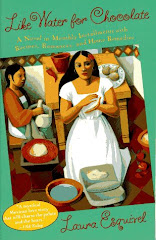
Dominican Republic, 1964.
It seems as if women all over the world, in any time period, no matter how different they are, have one thing in common...they hate men. It's the tell-tale "can't live with 'em, can't live without 'em" story. I am more than half way through this novel and these women are MORE than fed up with their men... all of them, even El Jefe himself, and they are certainly not keeping their opinions under wraps. Though the three sisters have different men in their lives to hate on, the one man they do have in common is their father. The father is responsible for their cynical view of men and relationships, it seems it all comes back to him. Good work Pops, you harbored a second family and got caught. There's nothing like having your eldest daughter drive your prized Jeep into your mistresses' porch, nevertheless scaring the crap out of your love-children. From that point on the girls have defied the men around them left and right. Minerva, the spunky one, even took it to the level of slapping the blessed cheek of Trujillo when he made a pass at her on the dance floor....surprisingly a bad idea. I guess even the national leader hasn't realized that women do not like to be fondled, stalked, groped, heckled, or "chosen". Strike one for the Mirabal Sisters.
Note: Most men you meet in an illegal revolutionary underground meeting are NOT boyfriend material. Poor Minerva & Dede, they will never learn. Lio, Minerva's first love interest, was one of the elite minds behind the Revolution. His numerous letters to Minerva discussing his plans were discovered, thrusting Minerva into the arms of the government to fend for herself. Dede who is completely blinded by her love for Palomino, allows him to hide his revolutionary weapons under the floorboards in her dorm room closet. He comes around so often with other revolutionaries that her neighbors even think she is running some kind of whorehouse. Though their relationship is new I can see that it will going somewhere in the next few chapters, however poor Dede is left with the new reputation of a loose woman...what women do for men.
and as for Patricia's loveless marriage, it is precisely that...loveless.



